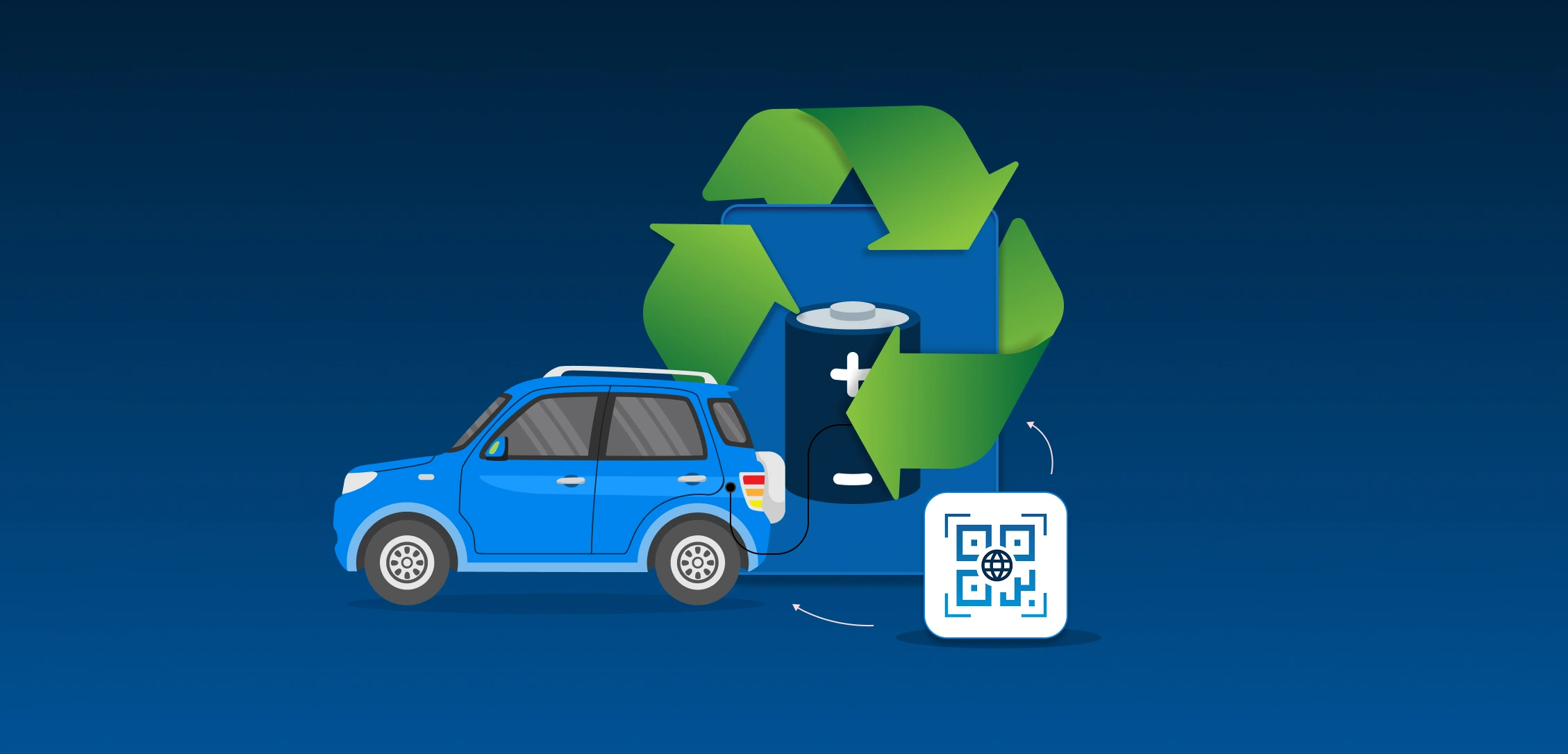
Businesses are adopting Electric vehicles or EV Battery Passports to accelerate the circular economy and to comply with the EU green deal. The electric vehicle batteries contain lithium and cobalt which are valuable and finite. Inadequate tracking mechanisms of these materials can lead to significant waste, financial losses, and unfulfilled circular economy potential for businesses.
The EU Batteries Regulation mandates a Digital Battery Passport by February 18, 2027, for batteries sold in the EU, aligning with the Ecodesign for Sustainable Products Regulation (ESPR) and its Digital Product Passport (DPP) concept.
EV battery passports offer a solution: secure digital identities for each battery. These passports detail:
These digital passports benefit original equipment manufacturers (OEMs), recyclers, energy storage operators, and regulators by providing immediate, verifiable data, leading to:
EV battery passports are crucial for a sustainable and economically viable circular economy in electric vehicles.
Battery passports are essential for transforming the management of electric vehicle (EV) batteries, along with covering regulatory compliance. By providing comprehensive digital data, they enable businesses to:
In essence, a battery passport transforms a complex and opaque asset into a clear and manageable resource, thereby boosting operational efficiency and sustainability opportunities.
Traditional EV battery recycling is slow and risky due to a lack of data, forcing hazardous manual testing. Battery passports solve this by providing instant, verified information, optimising:
Imagine a fleet operator retiring hundreds of EV batteries. Instead of sending them all for disposal, battery passports allow them to prioritise healthy batteries for reuse while efficiently processing the rest for material recovery.
Battery passports are becoming a cornerstone of the circular economy. By extending the life of batteries, they help companies get the most out of every unit while easing pressure on natural resources. This makes them not just a technical tool but a practical solution for both efficiency and sustainability.
One of the biggest advantages lies in material recovery. With better tracking and transparency, it’s easier to separate and reclaim valuable components. This means fewer batteries end up in landfills, more raw materials are kept in circulation, and the need for new resource extraction is reduced. Recovering metals, plastics, and other compounds also cuts costs and improves operational efficiency, all while reducing pollution and waste.
Battery passports also create space for new business models. Refurbishment, resale, and service-based approaches like “energy-as-a-service” become far more viable when every battery has a digital record. For businesses aiming to lead on sustainability, adopting battery passports is more than a compliance step, it’s a chance to set the standard for a responsible, circular economy.
Battery passports deliver clear advantages for all players in the EV value chain:
Companies that use battery passports really stand out because they're all about being clear, responsible, and trustworthy. This commitment to doing things the right way brings in great partners, eco-conscious customers, and positive attention from regulators. Ultimately, it boosts their brand and helps build a sustainable future for EV batteries.
DigiProd Pass makes managing battery passports simple and reliable. It provides a digital platform where the entire lifecycle of a battery; production, usage, and end-of-life can be tracked and recorded. With real-time monitoring and IoT integration, companies can see how batteries are performing and when they need maintenance or replacement. Blockchain technology ensures all data is secure, making regulatory compliance straightforward and transparent.
Beyond compliance, DigiProd Pass enables circular economy practices by supporting battery refurbishment, resale, and energy-as-a-service models, keeping valuable materials in circulation and reducing waste. For companies focused on sustainability, DigiProd Pass is more than a tool, it’s a way to lead the industry while protecting the environment.
EV battery passports are innovative tools that advance intelligent recycling and the circular economy. These digital twins monitor each battery's journey, from its material makeup and origin to its performance and maintenance history.
Businesses can earn a competitive advantage adopting battery passports early as this transparency is very important. To increase efficiency, reduce waste, enable "battery-as-a-service" and repurposing, building consumer trust Battery passports are a must. They are driving the transition from a linear to a regenerative model, ensuring a sustainable automotive industry.
https://environment.ec.europa.eu/strategy/circular-economy-action-plan_en




.svg)
.svg)